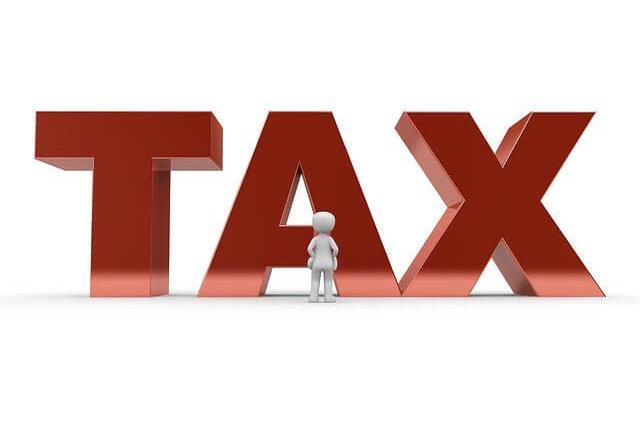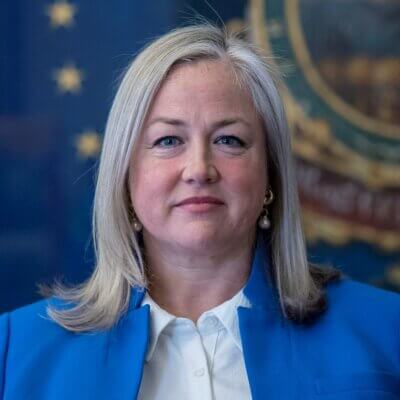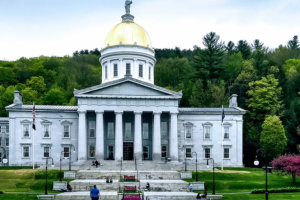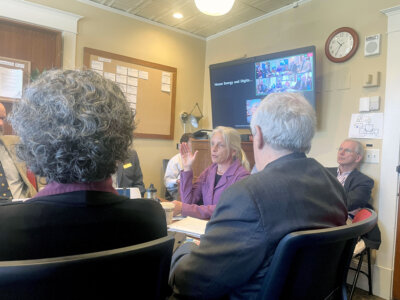How real is the 18-percent tax rate rise?
In the context of my legislative life, every time property taxes, the education fund, property tax increases, pupil weights or anything relating to that topic comes up, the person speaking or writing makes this caveat: “It’s complicated.” Or, “It’s incredibly complicated.” Or, “It’s super complicated.” In all honesty, it’s pretty new to me as a concept, and while I’m trying my best to understand how the system works, I haven’t quite fully taken it on yet because it’s so … complicated.
What’s not complicated is that on Dec. 1, as required by law, the state tax commissioner’s office released an education tax letter that cautioned that property tax rates could rise up to over 18 percent over the coming year. I don’t want that. And I’ve heard from enough Charlotte, Hinesburg and Vermont residents that you all don’t want that, either, and I don’t blame you.

If you’re interested in the pupil weight system, the non-partisan Joint Fiscal Office in Montpelier has put together this PDF that explains much better than I ever could how the pupil weight system works, and how and why it’s changing. Here’s a link.
Back to the taxes that none of us are excited to pay. The dreaded 18-percent projection is based in large part on how much the state anticipates school districts will spend in the upcoming year. The Champlain Valley School District, of which we are a part, is gearing up for its budget season, and we will vote on this budget in March. I encourage you all to go to their web site and see when the school board public hearings and budget forums are held, and to take advantage of the various ways they accept input from voters. The time to shape decision making is now. If you just wait until March and vote down the budget, they’re going to cut it, but it might not be the way you want.
After school budgets are passed in the spring, and after the state can more accurately predict the fiscal year revenue and figure out the yield for the coming fiscal year, the tax rate is set. The 18-percent figure is sort of a worst-case-scenario tax rate — if everything goes basically the worst way it could go, and if the legislature does nothing to course-correct. We don’t have the power to change school budgets, but we do have the power to adjust the tax rate, and I assure you, I haven’t spoken to one legislator who’s like, “Hey, you know what I think we should do? Raise everyone’s property taxes by almost 20 percent!”
There are some tricks up our sleeves to avoid such a situation, like a reserve fund that can be used to basically buy down people’s tax rates, among others. It’s a tricky year because of inflation, and because the federal relief money from COVID is winding down at the same time kids’ needs from that time are still prevalent and sometimes acute. Also, in Charlotte, we are such overachievers that we already completed our property tax reappraisal ahead of most towns, which raised some people’s taxes.
Education funding is complex in Vermont but it’s also special — we take student equity to heart and use those funds to make sure that we’re not leaving behind students with special needs, with socio-economic struggles at home, with learning differences, who live in rural areas or in places where there are no public schools at all. We collectively made that decision to equitably fund schools, which means, of course, that some communities are paying more than others, and that some are benefitting more than others.
Our school in Charlotte is consistently ranked in the top 10 schools in the state, and Hinesburg in the top 20. CVU is always in the top five. We’re lucky to be in this spot. This, I know, doesn’t take the place of worries about how you’re going to pay your heating bill or buy new boots for your kids or keep living on your fixed income as a retiree if your taxes take a sudden and unanticipated upswing. I do believe there’s a balance to be had, and that balance isn’t an 18-percent increase; that figure is one that exists based on no action by anyone. I’m confident that the legislature, the school boards, and the governor and his administration will find a way to make that Dec. 1 letter a worst-case prediction rather than an inevitability.
Please let me know how you’re feeling about this, and if you have an opinion. I know, you don’t want your taxes to go up, but really, the more people I hear from, the better an idea I have of how to represent you.
My phone is 917-887-8231 for calls and texts, and my email. Happy holidays and let’s get after it and cause some good trouble in the new year. Thank you all so much, from the bottom of my heart, for all the support you’ve given me, even when you’re mad. I’ve so appreciated it.
Related Stories
Popular Stories
If you enjoy The Charlotte News, please consider making a donation. Your gift will help us produce more stories like this. The majority of our budget comes from charitable contributions. Your gift helps sustain The Charlotte News, keeping it a free service for everyone in town. Thank you.
Andrew Zehner, Board Chair





